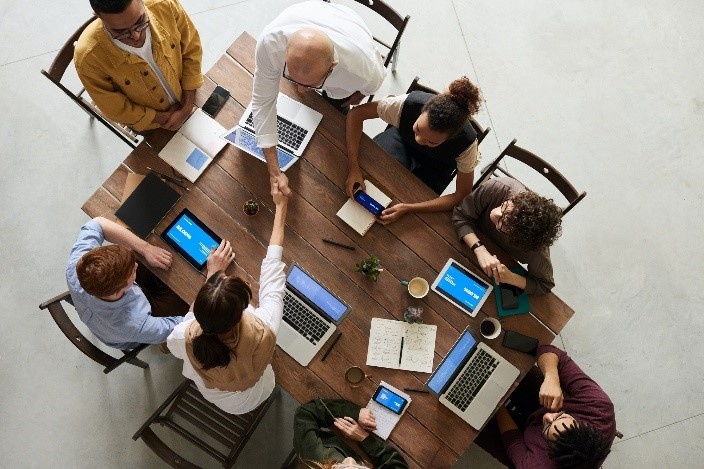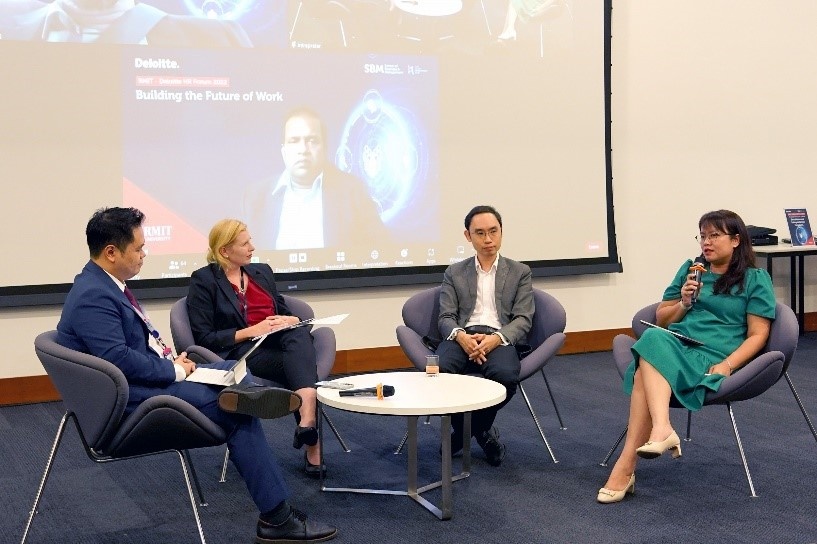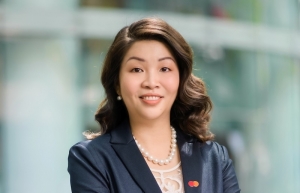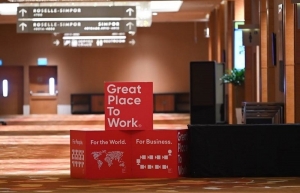From Great Resignation to Great Reimagination - Building the future of work
 |
| The pandemic has changed the nature of work and the workplace |
It has been nearly three years since the pandemic started, and while the fear of viruses might have eased, other challenges have been growing.
During the social distancing period, people had to work from home extensively. Additional working hours with limited face-to-face support created a wave of exhaustion, causing the Great Resignation. A global study by Microsoft in 2021 suggested that more than 40 per cent of the workforce was considering leaving their employer.
This begs several questions including: What’s next? What does the future of jobs look like? Is the office going to be the same as before?
During the RMIT-Deloitte HR Forum 2022 on August 17, four possible scenarios were introduced by Mark Teoh, executive director at Deloitte Consulting:
Firstly, people may work through co-location collaborations. In this model, work is executed through fluid networks of teams that are focused on achieving customer missions. These teams thrive when they are co-located by working together physically and utilising digital tools and platforms to connect with remote peers when needed. Employees do their best work on-site, have tools at their fingertips, and work together across the same time zone.
Secondly, people may work with more autonomy and personalisation. These organisations will provide their employees with wider choices, more independence, and increased flexibility across all dimensions, creating highly empowered teams. Employees work across fluid networks in virtual-hybrid environments. Teams are in tune with each other and have clear norms around working methods.
Thirdly, some organisations may take a more stable, secure, and social approach. They will choose to maintain stability in when, how, and where work is completed – a lot like the old normal. The workforce is focused on task execution relevant to their functional units, reflecting a traditional hierarchical model. There is a preference for this when working on-site with access to shared equipment, tools, and face-to-face connections.
Lastly, employers may give options for choosing the time and place for work. Work is executed through a traditional, functionally aligned structure with choice around the location and time when work is completed. These organisations will focus on employee outputs and outcomes, over time on the clock. These workforces are comfortable working in hybrid ways.
Mark Teoh emphasised that different careers may fit in a different model and that tech- and knowledge-driven jobs might be more suitable for the autonomy and personalisation model.
 |
| Panellists at the RMIT-Deloitte HR Forum 2022 |
Meanwhile, Professor Andrew R. Timming, deputy dean of Research and Innovation at RMIT School of Management in Australia, suggested more organisations should invest in virtual reality and metaverse-based solutions that help people engage in virtual work.
This can create a new workplace free from traditional offices and significantly reduce the cost of maintaining and developing office spaces in prime locations.
| During the forum, most speakers suggested the hybrid mode would continue at least for a while. |
Nonetheless, RMIT Vietnam's interim executive dean of Academic and Students Professor Claire Macken shared some concerns about hybrid and fully remote working practices.
She emphasised that the critical human interaction that forms trust between people might not be fully replicated by technology. Also, some organisations, such as manufacturing industries, cannot fully accept flexible and hybrid work models. Therefore, she believes it is important to remember the core merits of human interaction that add value to organisations and societies.
Associate Professor Seng Kiat Kok, deputy dean of Learning and Teaching at RMIT Vietnam School of Business and Management, suggested that ultimately it is important for the future of work to provide inclusive environments where everyone is considered.
“This means that technological advances, infrastructure, or even policies around flexible working arrangements need to consider the whole community of colleagues. Often staff who have disabilities are left out of these changes and there needs to be consideration for their needs as they have just as much to contribute to the organisation. Digital transformation needs to be undertaken with this inclusivity in mind,” he said.
 | The next frontier in delivering great customer experiences COVID-19 has tremendously changed how businesses and consumers interact with each other. For both, digital-first has become a norm and a necessity. As we emerge from the pandemic, it’s time to reflect on the most important changes we have witnessed, the key lessons learned, and understand how businesses can adapt to the new normal. |
 | Great Place to Work Vietnam shares insights on workplace culture Great Place to Work – the global authority on workplace culture – will honour 15 companies in the inaugural Vietnam's Best Workplaces event held at Sofitel Saigon Plaza on May 12. To establish what makes the best workplace, it has used the same standards as in the renowned Fortune 100 Best Companies to Work For in the US and Fortune World’s 25 Best Workplaces. |
During the forum, most speakers suggested the hybrid mode would continue at least for a while. Therefore, using the available technologies to harmonise people and organisations is essential, as is forming and maintaining a positive and nurturing organisational culture.
Associate Professor Nguyen Quang Trung, head of the Management Department at RMIT School of Business and Management concluded, “Above all, this is not about where we are, but how we work. Autonomy, respect, engagement, and reasonability are the key to motivating people wherever they work. Under these principles, leaders need to think bigger and more creatively about the net benefits and how best to achieve them."
What the stars mean:
★ Poor ★ ★ Promising ★★★ Good ★★★★ Very good ★★★★★ Exceptional
Related Contents
Latest News
More News
- Pegasus Tech Ventures steps up Vietnam focus (February 05, 2026 | 17:25)
- The generics industry: unlocking new growth drivers (February 04, 2026 | 17:39)
- Vietnam ready to increase purchases of US goods (February 04, 2026 | 15:55)
- Steel industry faces challenges in 2026 (February 03, 2026 | 17:20)
- State corporations poised to drive 2026 growth (February 03, 2026 | 13:58)
- Why high-tech talent will define Vietnam’s growth (February 02, 2026 | 10:47)
- FMCG resilience amid varying storms (February 02, 2026 | 10:00)
- Customs reforms strengthen business confidence, support trade growth (February 01, 2026 | 08:20)
- Vietnam and US to launch sixth trade negotiation round (January 30, 2026 | 15:19)
- Digital publishing emerges as key growth driver in Vietnam (January 30, 2026 | 10:59)

 Tag:
Tag:

























 Mobile Version
Mobile Version